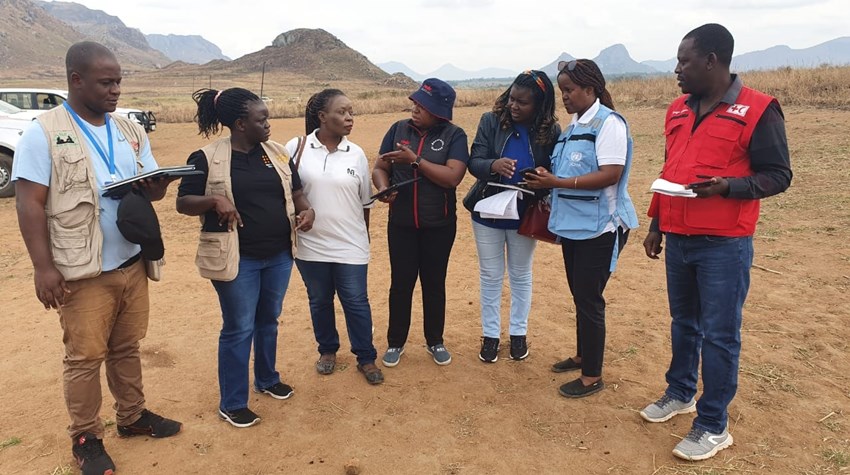In response to these escalating challenges, the United Nations Development Programme (UNDP) sought to bolster its efforts by requesting a Programme Specialist through the UN Standby Partnership mechanism. This initiative aimed to enhance the Country Office’s readiness for El Niño, focusing on collaboration with government counterparts and broader coordination.
Enter Regina, a roster member of RedR Australia, who was deployed as a Programme Specialist in Climate Change and Disaster Risk Management with UNDP. The first seven months of her deployment were included as part of the Australian Government’s Australia Assists program while the rest of her tenure was supported directly by UNDP core programming.
Over her 10-month deployment, Regina significantly contributed to the UNDP Resilience and Sustainable Growth Unit, providing essential technical inputs, and fostering collaboration among government, UN and internal stakeholders.
Regina's impact on El Niño preparedness in Malawi was marked by several key achievements:
Strategy and Policy Development: Regina reviewed the UNDP-funded Project Initiation Plan, a crucial document that directs UNDP’s disaster risk management support to Malawi’s Department of Disaster Management Agency (DoDMA) for 2024. She also provided advisory support for various initiatives, including the concept for the successor of the Modernised Climate Information and Early Warning Systems (M-Climes) project and the National Anticipatory Action Roadmap.
Resource Mobilisation: Developing a project proposal for the UN Flash Appeal and working as a team to successfully secure USD 100,000. Additionally, she was part of a team that submitted two additional proposals for funding from the African Development Bank and the Japanese Embassy.
Information Management: Working closely with the UNDP Digital team, Regina led and supported assessments under the Disaster Risk Management Information Systems (DRMIS), whose findings will help to improve the system, enable partners to assess collective responses and inform future programming decisions. The Malawi El Niño Response Dashboard created from this initiative will become an essential tool for donor advocacy and ensure the inclusion of marginalised communities.
Regina emphasised the importance of disability inclusion, stating, “The El Niño dashboard I worked on includes a dedicated indicator to ensure that people living with disabilities are part of the response.”
Coordination: Regina established and led the new UN Inter-agency DRM Advisory Group, crafting the concept note and drafting the 2024 work plan. Through this forum, she facilitated critical discussions that will be key in driving the Disaster Risk Management agenda in Malawi including El Niño preparedness and response.
Gender and Disability Inclusion: Regina promoted the integration of gender and disability considerations by supporting the development of program proposals that prioritise gender equality. She advocated for its inclusion at both the policy and community implementation levels. “This is one of UNDP's five approaches linked to the Malawi 2030 agenda,” Regina explained.
Regina's contributions to the Anticipatory Action processes have guided strategic discussions, ultimately influencing programming for affected communities. Reflecting on her experience, she stated, “UNDP provided an excellent opportunity to learn, adapt, and use my skills to contribute to the development agenda.”
Regina's deployment is a great example of the impact that skilled roster members can have by enhancing the capability of valuable organisations like UNDP, to address pressing challenges upon communities through the effects of El Niño in Malawi. The partnership not only supports immediate disaster response but also contributes to long-term preparedness for vulnerable communities.


